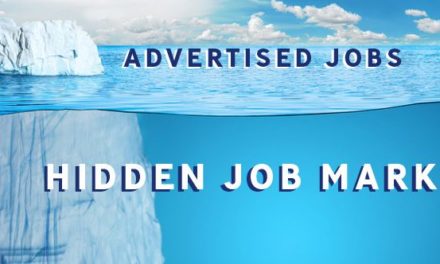Preparing for tough interview questions can go a long way. Expect questions about your education, training, previous employment, and volunteer or community activities. Most interviewers will explore your career plans and ask how this position relates to your ideas. They’ll question your interest in the job and company, the strengths you would bring to the role, and your weaknesses.
They’ll ask about your knowledge, skills and abilities, your expectations of your boss, and your supervisory style (if the job requires supervising/ managing others). They’ll want to know about your resilience and adaptability to change; your health and ability to show up for work and be productive; your availability to start work. They might also ask about your reasons for leaving previous employers and your motivation for pursuing particular goals, training, or leisure activities. It’s a fair game to explore your salary background and expectations.
They might ask you to produce a driver’s license, an abstract of your driving record, and evidence of academic qualifications, professional membership or first aid certification.
The tough questions are the ones you haven’t prepared for or anticipated. Interviewers report consistently that one of the toughest is: “Tell me about yourself.”, which is a regular opener. The interviewer is giving you free rein to start with whatever you wish. With that one question, the interviewer can evaluate your comfort with ambiguity, your organizational skills, your ability to anticipate what they need to know about you, and your ability to prioritize and summarize.
Many job candidates find this question too ambiguous. Resist the impulse to respond: “What do you want to know!” If the question throws you, imagine that they’ve asked instead: “Would you describe your background and how you feel it prepares you for this job!” That is what they’re asking.
Your response to this question should arouse further interest in you. Avoid using general statements about an experience on the assumption that your expertise equals demonstrated competencies. Instead, give a sense of your strengths and specific results you’ve achieved. For example:
Don’t say: “Well, I’ve had seven years experience in accounting for oilfield supply companies, including supervising four clerical support staff for three years. My academic background includes a NAIT Business Administration diploma in Accounting, and I’ve completed the fourth level of a CMA.”
Do say: “Firstly, I enjoy working with numbers and financial analysis. I started my post-secondary education by completing a NAIT Business Administration diploma majoring in accounting in 1974. When I graduated, I applied to XYZ Oil Services and was successful out of 48 applicants for the position of Office Manager. “In the seven years I’ve been there, I’ve had more responsibility and three promotions. I feel I’ve contributed significantly to the company’s profitability. I’ve recently completed the fourth level CMA. I ’11 write the final in May of this year.”
In this response, the candidate offers a great deal of relevant information regarding his interests, motivation, ability to set goals and follow through on them, academic and job-related accomplishments, initiative, creativity, promotability, and willingness to take on new challenges.
If you’ve analyzed your skills, strengths, and accomplishments, you have the data you need to help you prepare your verbal responses to the tough questions. They may include:
– Tell me about yourself.
– Why should we hire you?
– What would you bring to this job?
– Why do you want this job?
– So, why do you want to leave your current job?
– Why did you leave your last job?
– What are your strengths?
– What are your weaknesses?
– What did you like about your last job?
– What did you dislike?
Questions about weaknesses may seem to go against your purpose, such as your job weakness here might be a job-related knowledge or skill deficiency. You may need more development.
It’s good to acknowledge that you’re not perfect. Identify a weakness or two that would not be major for the job and explain how you are overcoming this obstacle, such as being interviewed for a managerial position.
Don’t say: “major weakness would be that I’ve never supervised before.”
Do say: “Although I’ve had limited exposure to supervision, I’ve been preparing myself for the supervisory development certificate at university and some leadership experience in my community league for hands-on practice. I’m also reading So You’re the Boss and In Search of Excellence.”
© Wordscapes® (David Turner). All Rights Reserved.




